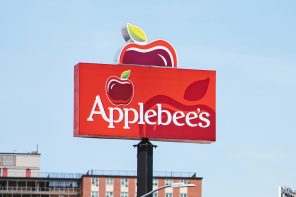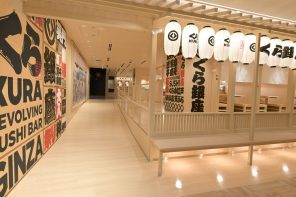The World’s 50 Best Bars celebrated its 10th anniversary in New York City with a #50BestTalks event presented by elit Vodka. To commemorate 10 years since the industry’s coveted accolade was announced, The World’s 50 Best Bars brought together legendary bartenders and bar owners from the list’s No.1s for a series of inspirational talks.
To celebrate the milestone anniversary, the acclaimed bar pioneers, who have led their bars to the top spot on the annual ranking over the past decade, presented six individual talks, followed by a panel discussion. The conversation, which encompassed thoughts on bar trends over the past decade and what’s to come over the next 10 years, was moderated by one of the cocktail sector’s foremost authorities, David Wondrich.
Discussions highlighted everything from the importance of education and empowerment in the workplace, the impact of sustainability and low-waste or no-waste operations, the significance of adopting practices that promote gender equality and diversity, to dedication to good service and bringing fun back to the bar.
STORYTELLING AT THE BAR - DECLAN MCGURK
- “Storytelling is a part of the very start of a human's appreciation of enjoyment,” said Declan McGurk of American Bar at The Savoy in London (The World’s Best Bar 2017), as he spoke of escapism as one of the most passionate human instincts, with storytelling and engagement imperative to transporting guests when they enter a bar.
- A great bar takes their story and uses it to engage with every guest. Storytelling is used to shape the narrative of bar with elements incorporating all aspects from the menu, to the artwork, and most importantly the staff.
- “You are not selling drinks, you are selling service”, added McGurk, defining drinks as a product but service as an experience.
LEADERSHIP AND EMPOWERMENT – JIM MEEHAN AND JILLIAN VOSE
- Leadership and empowerment were also highlighted by Jillian Vose of The Dead Rabbit in NYC (The World’s Best Bar 2016). “The balance in the bar makes or breaks the experience as a whole.” Speaking to a commitment to inclusivity and culture within the workplace, Vose praised having a system in place that trains and incentivises each employee’s loyalty and ability to grow with the bar.
- On the topic of team empowerment being paramount to a great bar, Jim Meehan of PDT in New York (The World’s Best Bar 2011), commented on a leader’s role in stepping away. Removing oneself to where you lose the opportunity to be overly critical nurtures a team that is autonomous in their dedication and inspired by their own work.
- Championing every employee’s personality and providing the right tools to succeed sets a team up for success. Balance was not only referenced when it comes to creating a great cocktail but when it comes to fostering an environment of work/life balance and healthy working culture.
THE ‘WHY’ - ALEX KRATENA
- “Education is at the center of a great bar,” said Alex Kratena, the former head bartender at Artesian in London (The World’s Best Bar 2012, 2013, 2014, 2015). He spoke to the ‘why’: commenting on the issues faced when creating and operating a bar often stemming from not being able to understand why things are done.
- Kratena made the point that great staff comes from managers offering their team the tools to think about the ‘whys’ and make decisions for themselves; to find new ways to create unique experiences for each and every guest.
- This encompasses everything from educating staff on balancing flavours and creating the drinks, to clearly communicated workplace practices and the financial matters that go into the everyday functioning of the operation.
CREATIVE SUSTAINABILITY - RYAN CHETIYAWARDANA
- Ryan Chetiyawardana of Dandelyan in London (The World’s Best Bar 2018), spoke about creative sustainability and how, “innovation is crucial; we don’t need to lose the wonderful things we have, they can coexist.”
- Chetiyawardana advocated an approach that does not start with any restriction, or ‘what you should not do’; he suggests reconsidering why a bar operates the way it does and how that can be made more sustainable.
- Whether in the seasonality of produce used or operation elements that go into building a beverage programme, Chetiyawardana implores the industry to think about how they can use the tools available to them to innovate and challenge current practices.
SERVICE FIRST – JONATHAN DOWNEY
- For Jonathan Downey of London’s Milk & Honey (The World’s Best Bar 2009, 2010), the most important thing about a great bar is, “the people that work there and the people that go there.” Downey talked about how his bars “specialise in pleasure and looking after each other.” A great bar has a commitment to offering customers both a unique experience and a good time.
- Downey created Milk & Honey in London out of love for Sasha Petraske’s original speakeasy of the same name in New York and his own admiration for the US bar scene. He reiterated thoughts on great service knowing no bounds for success and highlighting the strength of cross-cultural openings.
- Locality was also a strong agent for good service, with the rise of the neighborhood bars in unheralded areas of a major city offering service that reflects the specific location.






